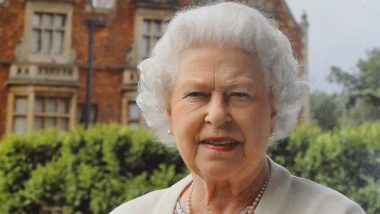London, September 9: Everyday politics was put on hold in UK with lawmakers set to pay tribute to Queen Elizabeth II in Parliament over two days, which began with a special session at noon. Many sporting and cultural events were cancelled as a mark of respect, and some businesses — including Selfridges department store and the Legoland amusement park — shut their doors.
Archbishop of Canterbury Justin Welby said the queen's death marked an “enormous shift” for Britain and the world. “A part of our lives we've taken for granted as being permanent is no longer there,” he said. But while Elizabeth's death portends a monumental shift, day-to-day life in Britain went on Friday, with children in school and adults at work and facing concerns about soaring prices.
Elizabeth was Britain's longest-reigning monarch and a symbol of constancy in a turbulent era that saw the decline of the British empire and disarray in her own family. Members of the royal family had rushed to her side at the family's summer residence in Balmoral after her health took a turn for the worse.
On Friday, Truss and other senior ministers are expected to attend a remembrance service at St Paul's Cathedral in London. Charles, who became the monarch immediately upon his mother's death, will then be formally proclaimed king at a special ceremony Saturday. Queen Elizabeth II Death: India Declares One-Day Mourning as a Mark of Respect on September 11.
After a vigil in Edinburgh, the queen's coffin will be brought to London, and she will lie in state for several days before her funeral in Westminster Abbey.
As the second Elizabethan Age came to a close Thursday, the BBC played the national anthem, “God Save the Queen,” over a portrait of the monarch in full regalia as her death was announced. The flag over Buckingham Palace was lowered to half-staff. And in the one of first of many shifts to come, the anthem played Friday was “God Save the King.”
The impact of Elizabeth's loss will be unpredictable for Britain. She helped stabilise and modernise the monarchy across decades of enormous social change, but its relevance in the 21st century has often been called into question. The public's abiding affection for the queen had helped sustain support for the monarchy during the family scandals, but Charles is nowhere near as popular.
“Charles can never replace her, you know, and that makes sense," said 31-year-old Londoner Mariam Sherwani. Like many mourners, she referred to Elizabeth as a grandmother figure. Others compared her to their mothers or great-grandmothers. But around the world, her passing revealed conflicting emotions about the nation and institutions she represented.
In Ireland, some soccer fans cheered. In India, once the “jewel in the crown” of the British empire, entrepreneur Dhiren Singh described his own personal sadness at her death, but added, “I do not think we have any place for kings and queens in today's world."
For some, Elizabeth was a queen whose coronation glittered with shards of a stunning 3,106-carat diamond pulled from grim southern African mines, a monarch who inherited an empire they resented. Queen Elizabeth II Visited India Thrice; Got Rousing Reception at Delhi’s Ramlila Maidan in 1961, Inaugurated AIIMS Buildings.
In the years after she became queen in Kenya, scores of thousands of ethnic Kikuyu were rounded up in camps by British colonisers under threat from the local Mau Mau rebellion. Across the continent, nations rejected British rule and chose independence in her first decade on the throne.
She led a power that at times was criticised as lecturing African nations on democracy but denying many of their citizens the visas to visit Britain and experience it firsthand. (AP)
(The above story is verified and authored by Press Trust of India (PTI) staff. PTI, India’s premier news agency, employs more than 400 journalists and 500 stringers to cover almost every district and small town in India.. The views appearing in the above post do not reflect the opinions of LatestLY)













 Quickly
Quickly


